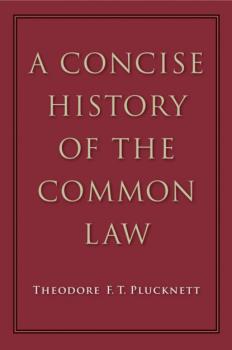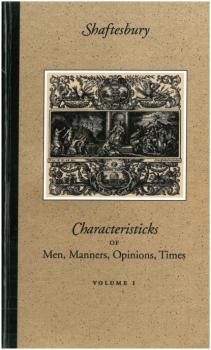ТОП просматриваемых книг сайта:
Юриспруденция, право
Различные книги в жанре Юриспруденция, право, доступные для чтения и скачиванияАннотация
An utterly immersive work of intelligent, high end true crime, The Good Girls combines the thrill of investigation with the art of literary narrative non-fiction. A remarkable excavation of a case that shocked a nation and exposed the dark heart of contemporary India. It will stand alongside such classics as Katherine Boo’s Behind the Beautiful Forevers , John Berendt's Midnight in the Garden of Good and Evil , and Maggie Nelson's The Red Parts . Will also appeal to fans of smart sociological crime stories which use a case as a starting point to peel back the layers of a society and its mores – such as Richard Lloyd Parry's People Who Eat Darkness , Valeria Luiselli’s Lost Children Archive, Robert Kolker's The Lost Girls, as well as celebrated true crime podcasts like Serial[i] and [i]STown. Sonia Faleiro is an award-winning writer and journalist, and the winner of the Karmaveer Puraskaar Award for Social Justice. Her last book, Beautiful Thing, was named Sunday Times Travel Book of the Year, Time Out 's Subcontinental Book of the Year, and an Economist, NPR, CNN, Time Out, Guardian, San Francisco Chronicle, Kirkus, and Observer Book of the Year. The book was described by Kiran Desai as 'a magnificent piece of reportage', as 'reporting at its best' by Junot Diaz, and as 'a masterpiece of observation' by William Dalrymple. Faleiro has earned a national reputation for smart commentary on contemporary social issues of India through her frequent contributions to the New York Times, Guardian, Financial Times and others.
Аннотация
As always during its long history, English common law, upon which American law is based, has had to defend itself against the challenge of civil law’s clarity and traditions. That challenge to our common-law heritage remains today. To that end, Liberty Fund now makes available a clear and candid discussion of common law. A Concise History of the Common Law provides a source for common-law understanding of individual rights, not in theory only, but protected through the confusing and messy evolution of courts and their administration as they struggled to resolve real problems. Plucknett’s seminal work is intended to convey a sense of historical development—not to serve merely as a work of reference.The first half of the book is a historical introduction to the study of law. Plucknett discusses the conditions in political, economic, social, and religious thought that have contributed to the genesis of law. This section is a brief but astoundingly full introduction to the study of law.The second half of the book consists of chapters introducing the reader to the history of some of the main divisions of law, such as criminal, tort, property, contract, and succession. These topics are treated with careful exposition so that the book will be of interest to those just embarking on their quest in legal history while still providing enough substantial information, references, and footnotes to make it meaningful for the well-versed legal history reader.Theodore F. T. Plucknett (1897–1965) was an English legal historian. At twenty-six, he was appointed by Roscoe Pound as professor of legal history at Harvard Law School. Please note: This title is available as an ebook for purchase on Amazon, Barnes and Noble, and iTunes.
Аннотация
Аннотация
Between 1927 and 1979, more than 8,000 people were involuntarily sterilized in five hospitals across the state of Virginia. From this plain and terrible fact springs Elizabeth Catte’s <i>Pure America</i>, a sweeping, unsparing history of eugenics in Virginia, and by extension the United States. Virginia’s twentieth-century eugenics program was not the misguided initiative of well-meaning men of the day, writes Catte, with clarity and ferocity. It was a manifestation of white supremacy. It was a form of employment insurance. It was a means of controlling “troublesome” women and a philosophy that helped remove poor people from valuable land. It was cruel and it was wrong, and yet today sites where it was practiced like Western State Hospital, in Staunton, VA, are rehabilitated as luxury housing, their histories hushed up in the service of capital. As was amply evidenced by her acclaimed 2018 book <em>What You Are Getting Wrong About Appalachia</em>, Catte has no room for excuses; no patience for equivocation. What does it mean for modern America, she asks here, that such buildings are given the second chance that 8,000 citizens never got? And what possible interventions can be made now, repair their damage?
The Law of Nations Treated According to the Scientific Method - Christian von Wolff
Natural Law and Enlightenment ClassicsАннотация
Christian Wolff’s The Law of Nations is a cornerstone of eighteenth-century thought. A treatise on the philosophy of human action, on the foundations of political communities, and on international law, it influenced philosophers throughout the eighteenth-century Enlightenment world. According to Knud Haakonssen, general editor of the Natural Law and Enlightenment series, “before Kant’s critical philosophy, Wolff was without comparison the most influential German thinker for several decades as well as a major European figure.”One of the most striking features of The Law of Nations is Wolff’s single-minded dedication to what he calls the “scientific method.” Though different from what we understand by that today, Wolff’s method still focuses on the illumination of truth via a step-by-step, logical examination of what is already known in order to explain what is unknown. As such, The Law of Nations is Wolff’s triumphant synthesis of his scientific method and his observations regarding the operations of nations. It examines the full gamut of national functions: what duties nations have to themselves and to each other, how national ownership should be viewed, how treaties should be formed, and how nations should act in both war and peace.Though Wolff’s contemporaries in authority did not always accept his ideas—he was banished from the lands of the king of Prussia for seventeen years for his radical notions regarding moral obligation and human free will—his influence ultimately spread across Europe, shaping philosophical study in many German, Dutch, and Scandinavian universities especially.The Liberty Fund edition of The Law of Nations is the first in English since the 1934 translation by Joseph H. Drake. Thomas Ahnert has revised and corrected that translation for readability and accuracy and has also added footnotes that explain the many references and technical terms Wolff uses throughout the text.Thomas Ahnert is Reader and Head of History at the University of Edinburgh, Scotland. Among his publications are The Moral Culture of the Scottish Enlightenment, 1690–1805, an edition of Thomasius’s Institutes of Divine Jurisprudence, and Religion and the Origins of the German Enlightenment.
Аннотация
In Constitutionalism and the Separation of Powers, M. J. C. Vile traces the history of the doctrine from its rise during the English Civil War, through its development in the eighteenth century—through subsequent political thought and constitution-making in Britain, France, and the United States.M. J. C. Vile is Professor Emeritus of Political Science at the University of Kent at Canterbury and author of The Structure of American Federalism. Please note: This title is available as an ebook for purchase on Amazon, Barnes and Noble, and iTunes.
Аннотация
Roscoe Pound, former dean of Harvard Law School, delivered a series of lectures at the University of Calcutta in 1948. In these lectures, he criticized virtually every modern mode of interpreting the law because he believed the administration of justice had lost its grounding and recourse to enduring ideals.Now published in the U.S. for the first time, Pound’s lectures are collected in Liberty Fund’s The Ideal Element in Law, Pound’s most important contribution to the relationship between law and liberty.The Ideal Element in Law was a radical book for its time and is just as meaningful today as when Pound’s lectures were first delivered. Pound’s view of the welfare state as a means of expanding government power over the individual speaks to the front-page issues of the new millennium as clearly as it did to America in the mid-twentieth century.Pound argues that the theme of justice grounded in enduring ideals is critical for America. He views American courts as relying on sociological theories, political ends, or other objectives, and in so doing, divorcing the practice of law from the rule of law and the rule of law from the enduring ideal of law itself.Roscoe Pound is universally recognized as one of the most important legal minds of the early twentieth century. Considered by many to be the dean of American jurisprudence, Pound was a former Justice of the Supreme Court of Nebraska and served as dean of Harvard Law School from 1916 to 1936. Please note: This title is available as an ebook for purchase on Amazon, Barnes and Noble, and iTunes.
Lectures on the Relation between Law and Public Opinion in England during the Nineteenth Century - A. V. Dicey
Аннотация
This volume brings together a series of lectures A. V. Dicey first gave at Harvard Law School on the influence of public opinion in England during the nineteenth century and its impact on legislation. Dicey’s lectures were accurate as a reflection of the anxieties felt by turn-of-the-century Benthamite Liberals in the face of Socialist and New Liberal challenges.A. V. Dicey (1835–1922) was an English jurist, Vinerian Professor of English Law at Oxford University, and author of, among other works, The Law of the Constitution.Richard VandeWetering is Assistant Professor of Political Science at the University of Western Ontario. Please note: This title is available as an ebook for purchase on Amazon, Barnes and Noble, and iTunes.
Аннотация
First published in 1895, Sir Frederick Pollock and Frederic William Maitland’s legal classic The History of English Law before the Time of Edward I expanded the work of Sir Edward Coke and William Blackstone by exploring the origins of key aspects of English common law and society and with them the development of individual rights as these were gradually carved out from the authority of the Crown and the Church. Although it has been more than a century since its initial publication, Pollock and Maitland’s work is still considered an accessible and useful foundational reference for scholars of medieval English law.Volume one begins with an examination of Anglo-Saxon law, goes on to consider the changes in law introduced by the Normans, then moves to the twelfth-century “Age of Glanvill,” with the first great compilation of English laws and customs, followed by the thirteenth-century “Age of Bracton,” author of another major treatise on the same subject. Volume two takes up different areas of English law topic by topic, or as its authors labeled it, “The Doctrines of English Law in the Early Middle Ages.” They consider land tenure, marriage and wardship, fealty, the ranks of men both free and unfree, aliens, Jews, excommunicates, women, and the churches and the King, before turning to the various jurisdictions of that decentralized era.The History of English Law before the Time of Edward I helps readers explore the origins of English legal exceptionalism and through the English tradition the basis of the law of America, Canada, Australia, and other nations. This work is of interest to legal scholars, historians of the Middle Ages, political scientists, political philosophers, and all those interested in Anglo-Saxon law and early law and society.Please note: This title is available as an ebook for purchase on Amazon, Barnes and Noble, and iTunes.
Аннотация
According to Bruno Leoni, the greatest obstacle to rule of law in our time is the problem of overlegislation. In modern democratic societies, legislative bodies increasingly usurp functions that were, and should be, exercised by individuals or groups rather than government.Bruno Leoni (1913–1967) was an attorney and Professor of Legal Theory and the Theory of the State at the University of Pavia, Italy. Please note: This title is available as an ebook for purchase on Amazon, Barnes and Noble, and iTunes.










